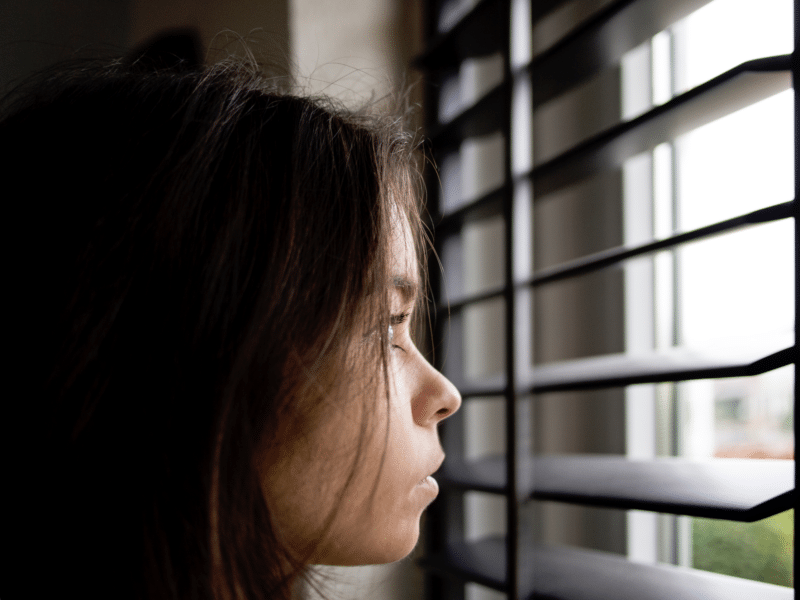This week concludes the last of six committee weeks in advance of 2022 legislative session, which begins early on January 11 rather than March. Our overall takeaway from the committee meetings so far is there was more about children’s issues that wasn’t calendared for public discussion than what was.
Two developments in particular were not brought publicly to the attention of legislators by the Florida Department of Children & Families.
Is DCF Playing Politics With Unaccompanied Children?

The first was Department of Children and Families’ (DCF) refusal to issue a license decision to Lutheran Services of Florida so it could continue its Sarasota shelter for 60 unaccompanied immigrant children. It wasn’t that DCF said no to the license extension request. It simply did not act.
Experts inform the American Children’s Campaign that it is illegal for DCF to ignore a licensing request. DCF must render a decision in order for the petitioner to appeal an adverse decision to the Division of Administrative Hearings.
This refusal to reply resulted in the transport of already traumatized children to a shelter in Orlando that continues to maintain a license. This uprooting runs afoul to Florida policy that says the protection of children is paramount, as well as the sweeping child welfare overhaul in 2021:
- The Legislature finds that many children in out-of-home care experience multiple changes in placement, and those transitions often result in trauma;
- The Legislature further finds that poorly planned and executed or improperly timed transitions may adversely impact a child’s healthy development;
- The Legislature finds that the best child welfare practices recognize the need to prioritize the minimization of the number of placements for every child.
DCF Acts with Lack of Transparency
The second issue not publicly discussed during committee weeks involved the long-anticipated implosion of Eckerd Connects, the community-based care (CBC) child welfare lead agency in Pinellas and Pasco counties. The combined population of the counties, which comprise Judicial Circuit 6, exceeds 1.5 million, of which more than 300,000 are children. The counties are 5th and 11th in overall size when compared to all Florida counties.
The contract is worth $80 million. Problems leading to the long-anticipated melt down were not presented, or even hinted at, which would have drawn attention to solutions. Pathways to resolution were not aired either.
Instead, DCF has essentially steamrolled over advocates, local community funding agencies, the philanthropic sector, stakeholders and others in its haste to sign a five-year contract with a new provider. No community meetings were held, the interviews of the three prospective agencies were not publicly noticed, and only “insiders” had any hints of developments, and they were few and far between.
There’s another problem. Experts advise American Children’s Campaign that a state law exists that should a contract for a new service area be contemplated with an existing CBC, it must be a CBC serving no smaller than a county and no larger than two contiguous judicial circuits. Experts continue that DCF clearly has violated this law in its selection of a CBC from NE Florida (Jacksonville area to serve Pinellas/Pasco counties).

DCF is ignoring the reality that the majority of services to children and families in Florida are provided by local and neighborhood organizations both secular and faith-based, and not by state agencies.
DCF’s actions essentially say they are running the show, OPPOSITE of the vision of community-based care, which was predicated on local engagement with DCF oversight of quality and fiscal integrity.
DCF is gradually but assuredly forming larger and larger child welfare conglomerates over larger and larger geographies, and multiple judicial circuits, without direct ties to the communities served. The outcomes will not be good for community-based care. They are not good for abused and neglected children either.
Public Denied Input
Not acting on the opportunity to request for both of these issues to be heard during committee weeks has robbed the public of important opportunities to weigh in officially. For two state laws to have been ignored, apparently, is very troubling. If the Legislature is being left in the dark, it raises the question as to what the Governor is hearing from his executive branch agency.
Input too has been shaken by continuous turnover in executive branch functions. Within the current year, the Department of Children & Families (DCF) Secretary (who didn’t have much children’s issues experience for the job to begin with) resigned and was replaced by a well-meaning transfer from the Agency for Health Care Administration (AHCA). The Department of Juvenile Justice (DJJ) Secretary who didn’t have much direct experience in juvenile issues assumed the vacancy at AHCA. Her replacement at DJJ (until November 19th when a permanent DJJ Secretary was named) was listed on the website as “Acting” and, again, while well intentioned, didn’t have direct juvenile justice involvement to any large degree.
Can the Legislative Branch Pick Up the Slack?
This adult game of musical chairs has truly pushed the burden to the Florida Senate and House. But in many of the committee hearings on budget and practice, the agency officials representing the state were hard pressed to provide cogent, in-depth answers to a number of questions drilling down at foster care problems and reform attempts over two previous sessions.
Children Paying the Price

Children do not have a border crisis. The lack of sensitivity to unaccompanied children regardless of their origin has no place in Florida. Local not state-run child serving agencies have shown compassion and have attempted to ensure unaccompanied children are not sold, trafficked or lost in the shuffle. Horror stories continue to emerge from the past treatment of children in Texas and other southern border states.
All the turnover may also explain why DJJ has continued to release children into Florida communities from detention centers and secure residential centers without services. This adds to the foster care crisis on the dependency side of the spectrum. The load shifts to over-matched local providers, and law enforcement deals with the fall-out. The lack of aftercare for DJJ-involved children is a major issue that the new DJJ Secretary will need to face.
Issues Heard
The list of substantive children’s issues heard during the committee weeks includes the following:
Senator Keith Perry’s (R-Gainesville) efforts to expunge juvenile records received hearings and is on the path to be approved again this year. Minor changes were made to assuage the Governor’s concerns as expressed in last year’s surprise veto.
A panel discussion on foster care was held in the Senate. Unfortunately, the opportunity was missed to dig deeper into the thousands of cases of abuse by foster parents that were poorly handled in both investigative and licensing phases, as uncovered by USA Today. The foster parents who did testify were caring and concerned, the best of the best. They requested higher rates of reimbursement and assistance in covering child care costs. Neither of these requests are new. They remain a chronic problem and are among a list of reasons why recruiters face increasing difficulty in enlisting new foster homes in greater numbers than those leaving.
Finally, some speakers at a Baker Act panel actually spoke in favor of keeping children in receiving facilities for longer periods of time. This runs opposite of the facts that paint a clear picture of Baker Act use on Florida children being fractured and needing a major overhaul. Large numbers of children referred to Florida’s Baker Act screening facilities have been determined to be inappropriate or, at least, preventable.
Policy Agenda
American Children’s Campaign will continue to send updates of the latest happenings straight to your inbox. Our 2022 Policy Playbook and Legislative Center with real-time updates are also available on our website to see bills filed to date.
If you like reading our publications, we need your help to keep them coming. American Children’s Campaign is privately supported to maintain our independent voice. Please consider making a tax-deductible donation today!
This Capitol Report is brought to you by Amanda Ostrander, Karen Bonsignori and Roy Miller



